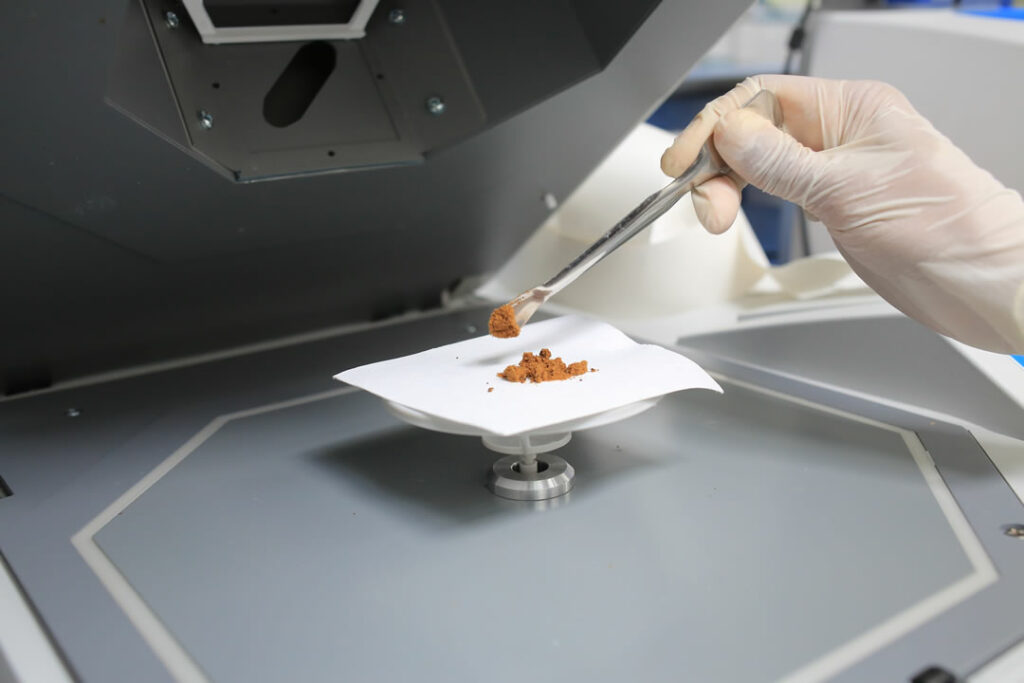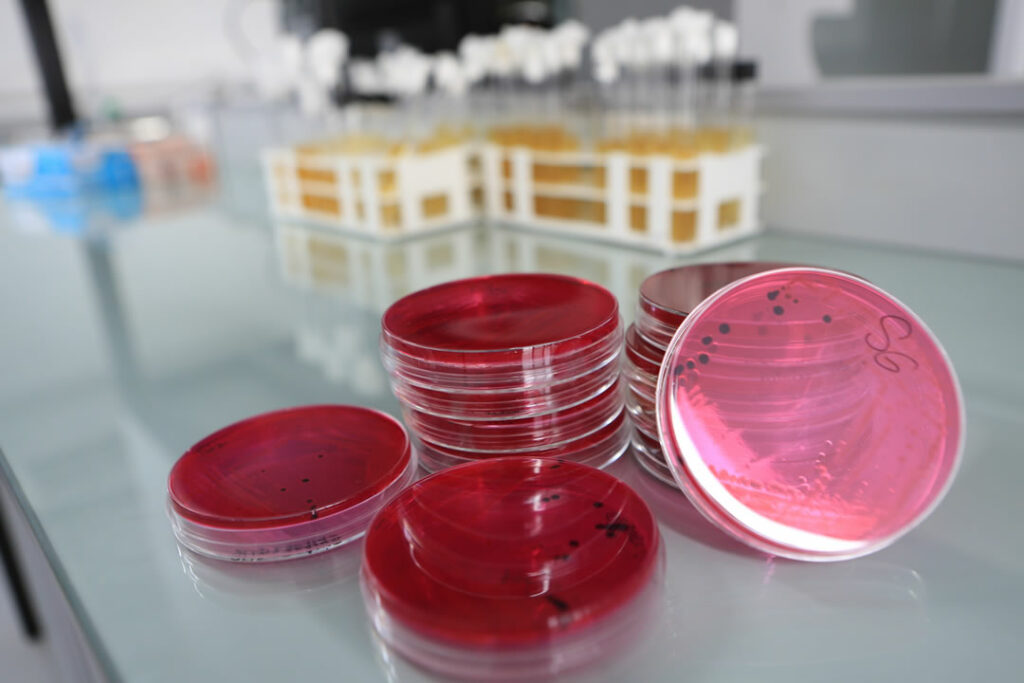Food & Feed
Overview Service
Food testing is essential for producing safe, high-quality products. As the food industry becomes more scrutinised, testing to ensure compliance with food safety rules and to protect public health is becoming increasingly important.
We employ cutting-edge methods and technology to identify risk factors, improve quality, efficiency, and market value. As your testing partner, you can expect quick turnaround times and accurate test results that demonstrate statutory compliance.
In recent years, the science of food and nutritional analysis has advanced rapidly.
To be compliant with local and European labelling regulations, the nutritional values of prepacked food products should be displayed on the packaging. Using a variety of scientific instruments and techniques, QuantiLAB offers nutritional analysis of food products which includes the following:
- Energy Value
- Carbohydrates
- Protein
- Fats (Saturated Fats, Unsaturated Fats)
- Sugars
- Cholesterol
- Omega 3 & 6
- Vitamins
- Minerals, among others
Laboratory-based nutritional analysis methods necessitate sending a physical sample of the product(s) to the laboratory. The samples are then prepared and analysed in the laboratory to produce data that is specific to the product.
Almost any food type can benefit from laboratory-based nutritional analysis. This method is useful for:
- General Nutritional Labelling Requirements
- Verifying nutritional information provided by the manufacturer or supplier
- Validating data derived from database analysis software
- Food analysis for animals (pet foods and agricultural feeds)
- CoAs requiring precise nutrients per 100g values.
Microbiological contamination is a serious safety concern in the food industry because it can impact on the health of consumers as well as on your brand. Food manufacturing businesses need to ensure the continued safety of their products throughout the entire production chain, making high quality testing an essential part of that process.
QuantiLAB offers a fast, efficient, and dependable testing service using a variety of accredited methods and a team of dedicated scientists.
Our state-of-the-art Microbiological Laboratory analyzes food and feed samples using a variety of biological and biochemical methods to identify and count microorganisms as described below:
- Salmonella Spp
- Escherichia coli
- Staphylococcus Spp
- Vibrio Spp
- Campylobacter Spp
- Coliforms
- Shigella Spp
- Bacillus cereus
- E.coli O157
- Enterobacteriaceae
- Listeria Spp, among others.
QuantiLAB’s microbiological testing portfolio includes both traditional (ISO standards) and modern (e.g. VIDAS) methods.
The ever-increasing demand for food, forces businesses to employ the most productive procedures possible in order to maintain product quality and quantity. This may result in the use of pesticides which can be detrimental to consumers and therefore residual levels are rigorously monitored for human health and safety.
Maximum Residue Limits (MRLs) are established by food safety regulators to create standards to safeguard consumers and the environment. Regulations and limitations might differ from country to country, and our list of target compounds and matrices is regularly updated.
QuantiLAB offers a quick analytical turnaround pesticide residue testing on food and feed products with its comprehensive pesticide scope of over 500 chemical standards.
The use of cutting-edge analytical equipment, extensive testing experience and highly trained staff distinguishes us from others in the region.
We regularly participate in major global Proficiency Testing programs for pesticide residues and obtain excellent results.
Some of the matrices we can test are:
- Vegetables
- Fruits
- Edible oil
- Cereals – Wheat, Flour, Rice
- Sugar
- Milk
Heavy metals are naturally present in the environment, such as in soil, water and the atmosphere, which leads to the contamination of food products ranging from plants (cereals, wheat, leafy vegetables, etc) to food from animal origin (such as fish, crustaceans, mollusks).
The presence of heavy metals in food products is a safety concern as it contaminates food chains and impacts on consumer’s health.
The following metals can be tested in food and feed:
Aluminium Antimony Arsenic Barium Beryllium Bismuth Boron Cadmium Chromium Cobalt Copper Iron Lead Lithium Magnesium
| Manganese Mercury Molybdenum Nickel Phosphorus Potassium Rhodium Selenium Silicon Silver Sodium Strontium Sulfur Tin Vanadium Zinc |
Mycotoxins are harmful secondary metabolites produced by a variety of fungi that grow in food and animal feed. They are considered to be one of the most important contaminants in foodstuffs and are resistant to food processing.
When these mycotoxins are ingested, they can be toxic to both humans and animals. Therefore to reduce the risk and ensure the safeguard of consumers, mycotoxin in foods and feed is regulated in many countries.
At QuantiLAB, we test for the most prevalent mycotoxins:
- Aflatoxins ( B1,B2,G1,G2, M1)
- Ochratoxin A
- Deoxynivalenol
- Fumonisins (B1+B2)
- Zearalenone
We can test mycotoxins in the following matrices:
- Animal Feed
- Fishmeal
- Wheat
- Flour
- Nuts – Peanuts, Almonds
- Milk, among others.
Melamine is a nitrogen-rich organic chemical compound which is usually seen in the form of white crystals. Melamine was discovered in wheat gluten and rice protein concentrates used in the production of pet food in 2007, resulting in a high number of dogs and cats death as a result of renal disease.
This chemical was also discovered in powdered infant formula in September 2008, resulting in the death of four children and many hospitalisation cases.
It was found that Melamine was added to raw milk that had previously been diluted with water in order to increase its volume. The addition of this molecule does, in fact, enhance the nitrogen content of the milk and hence its apparent protein content.
In large quantities, melamine is toxic and can produce kidney problems such as kidney stones.
QuantiLAB can analyse melamine and its derivatives (Cyanuric Acid, Ammeline & Ammelide) in milk, dry foods and animal feed.


Other Services
Need help?
If you require more information regarding any of the services QuantiLAB provides, please do not hesitate to get in-touch.
